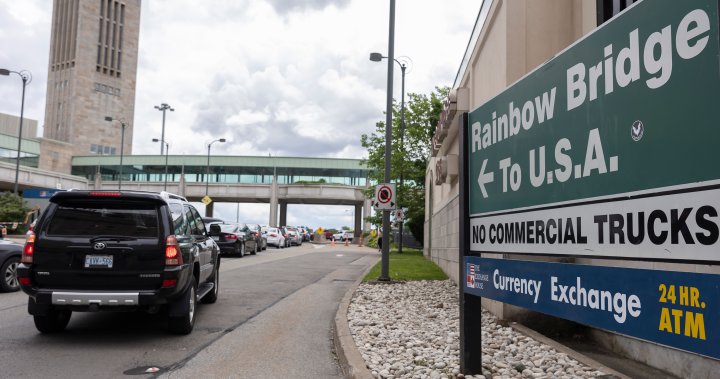Travel
Airlines ordered to compensate passengers in 50% of recent air travel complaint rulings, data shows | CBC News

Half of all airline passenger disputes resolved by Canada’s transport regulator over a recent nine-month period have resulted in wins for passengers.
According to CBC News analysis of newly available data, Canadian Transportation Agency (CTA) officers ordered airlines to compensate or refund passengers in 50 per cent of the 9,740 cases they resolved between Sept. 30, 2023, and June 30.
In most (72.6 per cent) of the rulings favouring the passenger, airlines were ordered to pay compensation for flight disruptions. In the rest, carriers had to reimburse customers for added expenses, or refund flights.
In each case, CTA officers issued the ruling after the airline had denied a passenger’s claim, and the passenger and the airline failed to resolve the matter.
“Half of [the passengers] were right, that they should have been paid and the airlines were wrong,” said John Gradek, lecturer and co-ordinator of the aviation management program at McGill University in Montreal.
The airlines, he said, “are playing a little fast and loose” with the rules.
The data is available in a new online tool on the CTA’s website. Even so, some industry and legal experts have raised concerns because the full CTA decisions, which used to be posted online, are now confidential. That means most case details, including all the reasons behind a ruling, and how much compensation was awarded, are no longer made public.
“It’s a violation of the open justice principle that these legally binding decisions are being made essentially in private,” said Paul Daly, chair in administrative law and governance at the University of Ottawa.
“I have grave doubts about the constitutionality of this provision.”
Canada’s air passenger protection regulations started rolling out in 2019. According to the rules, airlines must cover added expenses for certain flight disruptions, provide cash refunds for flight cancellations, and pay up to $1,000 for delays of three hours or more within the carrier’s control.
The CTA settles disputes between airlines and customers. Due to a flood of passenger complaints over the past several years, the agency’s backlog has swelled to more than 74,000 grievances.
Less time to respond
Among the 50 per cent of CTA rulings that favoured passengers, 1,553 (32.8%) involved Canada’s largest airline, Air Canada, and 1,443 (30 per cent) involved WestJet, the second largest.
Air Canada spokesperson Christophe Hennebelle pointed out that far less than half of CTA decisions involving the airline (39.5 per cent) resulted in an order to pay a passenger.
“Air Canada, in the vast majority of cases, properly compensates its customers,” said Hennebelle in an email.
He added that the CTA recently shortened the time allowed for airlines to respond to complaints to 14 days, which sometimes prevents Air Canada from gathering the necessary evidence to support its case.
“Numerical data does not always tell the full story,” said Hennebelle.
WestJet declined to comment.
Details kept secret
The CTA’s online tool lists selected data on rulings like the flight number, date, whether a delay was within the carrier’s control, and if the airline was ordered to pay compensation.
“The point of putting… this specific information out is so that another passenger would be able to say, ‘OK, I also was on this flight.… Was compensation ordered?'” said Tom Oommen, CTA director general of regulatory affairs.
“That is the relevant information for passengers.”
New data from the Canadian Transportation Agency shows that half of all complaints filed with the regulator have resulted in airlines being forced to compensate passengers, but there are concerns about the transparency of those decisions.
Due to legislative changes last year to streamline and speed up the CTA complaints process, full decisions are now only made public if both the passenger and airline agree. The CTA says there hasn’t been a case yet where both parties have agreed to go public.
The new rules also prevent passengers from speaking publicly about most details in CTA decisions.
CBC News was set to interview WestJet customer Jason Park about the outcome of his case. However, the day before his interview, Park said the CTA told him to keep the details under wraps.
“I was shocked,” he said. “I don’t understand the level of secrecy behind these decisions.”

Park had filed a complaint after WestJet rejected his compensation claim for a more than 24-hour flight delay from Ottawa to San Francisco in 2022.
Last month, the CTA awarded Park compensation — one of the few details he’s allowed to talk about. “I’m quite happy,” he said about the outcome.
But he’s disappointed that the written decision, detailing all the reasons why the CTA ruled in his favour, remains confidential.
“There’s information in there that could assist passengers,” he said. “Based on previous outcomes, passengers can actually decide whether or not they want to file a complaint.”
‘Violation of freedom of expression’
Daly, the law professor, says full details of CTA decisions should be made public and passengers should be allowed to talk about them.
“It’s a violation of freedom of expression to prevent people from being able to talk about their case,” he said. “I raised concerns even when the legislation was going through Parliament that keeping these decisions under wraps would be unconstitutional.”
However, Oommen, with the CTA says the agency’s new, streamlined system better serves Canadians, because their cases are more quickly dealt with, and basic but relevant information about each ruling is now easily accessible online.
“The law sets out what’s confidential and what’s not,” he said. “We publish on our website the information that’s key for each case.”











